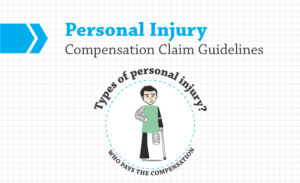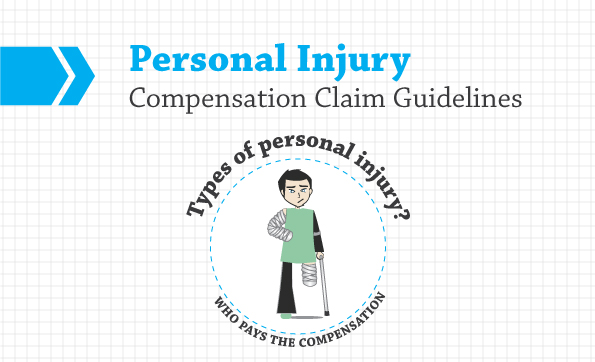
The release of the 2024 Judicial College Guidelines has significant implications for personal injury claims in the UK. These guidelines, which serve as a critical reference for courts and legal professionals when assessing damages in personal injury cases, offer updated recommendations that reflect recent legal developments and societal changes. This article explores the key changes introduced in the 2024 guidelines, their impact on claimants and defendants, and the broader implications for personal injury law.
Key Changes in the 2024 Judicial College Guidelines
1. Updated Compensation Bands
One of the most notable changes in the 2024 guidelines is the revision of compensation bands for various types of injuries. The guidelines have increased the compensation amounts across several categories, reflecting the rising cost of living and the need for fairer compensation. For example, minor injuries that previously fell into lower compensation brackets now receive higher awards, ensuring that claimants are more adequately compensated for their suffering and losses.
2. Emphasis on Psychological Injuries
The 2024 guidelines place a greater emphasis on psychological injuries, recognizing the profound impact these can have on an individual’s life. There is now more detailed guidance on assessing compensation for conditions such as post-traumatic stress disorder (PTSD), anxiety, and depression. This shift acknowledges the growing understanding of mental health issues and their long-term effects, ensuring that claimants with psychological injuries receive appropriate compensation.
3. Enhanced Guidelines for Specific Injuries
The new guidelines provide more granular details for specific types of injuries, including those resulting from medical negligence, workplace accidents, and road traffic incidents. This includes clearer definitions and more precise compensation ranges, which help in providing a more consistent and transparent framework for assessing damages. This change aims to reduce the variability in awards and make the compensation process more predictable for all parties involved.
Impact on Claimants
1. Increased Compensation
For claimants, the updated guidelines generally translate to higher compensation awards. This is particularly beneficial for those with minor injuries, who may have previously received relatively modest settlements. The recognition of psychological injuries also means that claimants can expect more comprehensive assessments and fairer compensation for mental health conditions arising from their injuries.
2. Clarity and Predictability
The enhanced detail in the guidelines provides claimants with a clearer understanding of the potential outcomes of their claims. This predictability can reduce the stress and uncertainty often associated with pursuing a personal injury claim, as claimants can more accurately gauge the compensation they might receive.
3. Fairer Assessments
With the new guidelines offering more detailed recommendations, there is a greater likelihood of fair and consistent assessments. This reduces the chances of under-compensation and ensures that claimants receive awards that more accurately reflect their injuries and the associated impact on their lives.
Impact on Defendants
1. Potential Increase in Payouts
For defendants, including insurance companies and employers, the revised guidelines may lead to higher payouts for personal injury claims. This could result in increased costs, which may be passed on to consumers in the form of higher insurance premiums or other charges.
2. Greater Need for Detailed Evidence
With the emphasis on more precise assessments, defendants will need to provide detailed evidence to counter claims. This may involve more comprehensive medical examinations and expert testimony to ensure that compensation is fair and justified.
3. Encouragement of Settlements
The clarity and predictability provided by the new guidelines may encourage more defendants to settle claims out of court. Knowing the likely outcome of a claim can make settlement a more attractive option, potentially reducing legal costs and the time spent on litigation.
Broader Implications for Personal Injury Law
1. Legal Precedents
The 2024 guidelines will likely influence legal precedents, as courts and legal professionals reference them in their decisions. This can lead to a more standardized approach to personal injury claims, promoting fairness and consistency across the legal system.
2. Increased Awareness of Psychological Injuries
The enhanced focus on psychological injuries may lead to greater awareness and recognition of mental health issues within the context of personal injury law. This could drive broader societal changes in how psychological injuries are perceived and treated.
3. Evolution of Legal Practices
Law firms and legal practitioners will need to stay abreast of the changes introduced by the 2024 guidelines. This may involve additional training and adaptation of legal strategies to ensure that clients receive the best possible representation and outcomes.
Conclusion
The 2024 Judicial College Guidelines mark a significant evolution in the assessment of personal injury claims in the UK. By increasing compensation bands, emphasizing psychological injuries, and providing more detailed guidance for specific injuries, the guidelines aim to ensure fairer and more consistent outcomes for claimants. While these changes may result in higher costs for defendants, they also promote clarity, predictability, and fairness in the legal process. As these guidelines begin to shape legal precedents and practices, they represent a crucial step forward in the ongoing development of personal injury law.
4o




